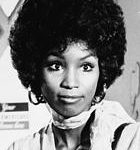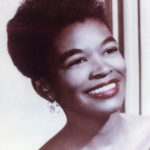It’s time to recognize Sally Hemings as a first lady of the United States
Photo: A man reads a plaque about Sally Hemings at Monticello, Thomas Jefferson’s estate in Charlottesville, Va., on Saturday, June 16, 2018. (Steve Ruark / Associated Press)
(Los Angeles Times) It is now widely understood that my ancestor Sally Hemings, an enslaved black woman, was the intimate companion of Thomas Jefferson for nearly four decades.
Monticello, the Virginia plantation operated as a museum by the Thomas Jefferson Foundation, acknowledged as much with a new exhibit last year: Hemings’ living quarters. The exhibit presents as fact that Hemings gave birth to at least six of Jefferson’s children.
Much about their relationship remains lost to history. We know that Hemings was Jefferson’s property and that in America she did not have the right to refuse sexual advances from her owner. We also know that Hemings was able to negotiate freedom for her children and “extraordinary privileges” for herself and that she occupied a central place in Jefferson’s life.
Hemings was with Jefferson from the late 1780s until his death in 1826.
Mainstream historians and the White House have long designated Martha Wayles Skelton Jefferson as our country’s third first lady. But Martha died in 1782, nearly two decades before Jefferson became president. Hemings was with Jefferson from the late 1780s until his death in 1826. And although she didn’t live at the White House, Hemings bore three of Jefferson’s children during the years when he was president.
For these reasons and others, it’s Sally Hemings, not Martha Wayles Skelton, who should be recognized as first lady. (more)
Dallas’ African American Museum to celebrate 25 years at Fair Park
 (Dallasnews.com) The Dallas African American Museum will celebrate its 25th year in Fair Park this week. But its history goes back 45 years, to when it opened on the former Bishop College campus that is now Paul Quinn College.
(Dallasnews.com) The Dallas African American Museum will celebrate its 25th year in Fair Park this week. But its history goes back 45 years, to when it opened on the former Bishop College campus that is now Paul Quinn College.
Former Texas state Rep. Helen Giddings — who served her last day in office Monday — has been a longtime champion for the museum. She will be the keynote speaker for the anniversary celebration at 11:30 a.m. Friday (Jan. 11) at Renaissance Dallas Hotel, 2222 N. Stemmons Freeway.
Dr. Harry Robinson Jr., 77, the museum’s founding director, president, and chief executive officer, opened the museum at Bishop College shortly after arriving on campus in 1974 as librarian and soon became the museum’s director.
Robinson, a New Orleans native, has been the unwavering mainstay of the museum through financial struggles and triumphant breakthroughs in African-American arts and culture. (more)
In Newly-Found Audio, A Forgotten Civil Rights Leader Says Coming Out ‘Was An Absolute Necessity’
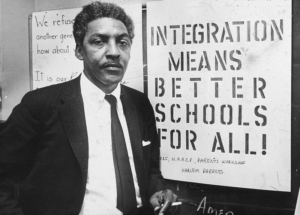
American civil rights activist Bayard Rustin, pictured in 1964, as spokesman for the Citywide Committee for Integration, at the organization’s headquarters, Siloam Presbyterian Church in New York City. (Patrick A. Burns/New York Times Co./Getty Images)
He was an adviser to Martin Luther King Jr. and the organizer behind the 1963 March on Washington.
Still, Bayard Rustin’s legacy as a leading figure in the civil rights movement is little known today, even among many history buffs and within the LGBTQ community. His homosexuality cost him that visibility and was considered by some as a hindrance to the movement’s success.
Rustin died in 1987, but his silenced voice was recently resurrected in previously unaired audio from an interview with the Washington Blade in the mid-1980s. The audio will air this week in an episode of the podcast Making Gay History. It was discovered by Sara Burningham, the podcast’s executive producer.
Rustin was the target of homophobic attacks, and as he discusses in the interview, he was sidelined by other black leaders at key moments during a movement he helped steer. (more)
Coach Walter Yates, 1940-2019
Noted HISD basketball coach and Houston Wheatley HS alum passes
 Walter Yates, who was the first black head coach at an all-white high school in Houston, passed away on Jan. 2 at age 78. Yates was born in Shepard, Texas to Douglas and Girty Yates, but grew up in Fifth Ward and graduated from Phillis Wheatley High School in 1960.
Walter Yates, who was the first black head coach at an all-white high school in Houston, passed away on Jan. 2 at age 78. Yates was born in Shepard, Texas to Douglas and Girty Yates, but grew up in Fifth Ward and graduated from Phillis Wheatley High School in 1960.
Yates was a young mentee for legendary coach Frankie Brazos, then at Wheatley, played for two other all-time greats, Collin Briggs and Jackie Carr. Yates was a member of Wheatley’s 1958 and 1959 Prairie View Interscholastic League state championship teams and went on to play at Pan American College (now University of Texas-Pan American) in Edinburg. An outstanding defensive player, from 1960-64 he helped lead the team to a 79-17 (.823) record including three Big State Conference titles and three NAIA Tournament appearances, including two berths in the title game and a national championship in 1963.
Yates was selected to “Who’s Who Among Students in American Universities and Colleges” in 1964 and graduated in 1965 with a degree in Education. In 1976, he was awarded a Master’s Degree in Administration and Supervision from Prairie View A&M University.
He began his coaching career in 1965 in the Houston Independent School District at E. O. Smith Middle School. After one year there, he was assigned as head coach at Jefferson Davis High School becoming the school’s first African-American head coach. He turned what had been a losing team for years into a state-ranked team in two seasons and pushed forward to win a number of district, bi-district, and city championships.
In 1985, Yates became head coach at Madison High School where his teams dominated their district for nine years. In 1995, he moved to Kashmere Gardens High School where he finished his career in 2007, after winning 986 games overall. In 1987, he was named “Outstanding Educator” in HISD and in 1988 was inducted into “Who’s Who of American High School Basketball Coaches.”
In 2007, Yates was inducted into both the UT-Pan American Hall of Fame and the Prairie View Interscholastic League Coaches Association Hall of Fame and Hall of Honor.
Yates’ body will lie in repose on Jan. 11 from 10 a.m.-to-6 p.m. at Carl Barnes Funeral Home at 746 West 22ndSt. in Houston. Visitation will be held on Jan. 12 from 9-to-11 a.m. followed immediately by the funeral at Community of Faith Church at 1024 Pinemont Dr. in Houston.
TIPHC Bookshelf
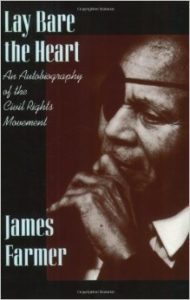 Published scholarship on black history in Texas is growing and we’d like to share with you some suggested readings, both current and past, from some of the preeminent history scholars in Texas and beyond. We invite you to take a look at our bookshelf page – including a featured selection – and check back as the list grows. A different selection will be featured each week. We welcome suggestions and reviews. This week, we offer, “Lay Bare the Heart, An Autobiography of the Civil Rights Movement,” by James Farmer.
Published scholarship on black history in Texas is growing and we’d like to share with you some suggested readings, both current and past, from some of the preeminent history scholars in Texas and beyond. We invite you to take a look at our bookshelf page – including a featured selection – and check back as the list grows. A different selection will be featured each week. We welcome suggestions and reviews. This week, we offer, “Lay Bare the Heart, An Autobiography of the Civil Rights Movement,” by James Farmer.
Texas native James Farmer is one of the “Big Four” of the turbulent 1960s civil rights movement, along with Martin Luther King Jr., Roy Wilkins, and Whitney Young. Farmer might be called the forgotten man of the movement, overshadowed by Martin Luther King Jr., who was deeply influenced by Farmer’s interpretation of Gandhi’s concept of nonviolent protest.
Born in Marshall, Texas, in 1920, the son of a preacher, Farmer grew up with segregated movie theaters and “White Only” drinking fountains. This background impelled him to found the Congress of Racial Equality in 1942. That same year he mobilized the first sit-in in an all-white restaurant near the University of Chicago. Under Farmer’s direction, CORE set the pattern for the civil rights movement by peaceful protests which eventually led to the dramatic “Freedom Rides” of the 1960s.
In Lay Bare the Heart Farmer tells the story of the heroic civil rights struggle of the 1950s and 1960s. This moving and unsparing personal account captures both the inspiring strengths and human weaknesses of a movement beset by rivalries, conflicts and betrayals. Farmer recalls meetings with Franklin and Eleanor Roosevelt, Jack and Bobby Kennedy, Adlai Stevenson (for whom he had great respect), and Lyndon Johnson (who, according to Farmer, used Adam Clayton Powell Jr., to thwart a major phase of the movement).
James Farmer has courageously worked for dignity for all people in the United States. In this book, he tells his story with forthright honesty.
First published in 1985 by Arbor House, this edition contains a new foreword by Don Carleton, director of the Dolph Briscoe Center for American History at the University of Texas at Austin, and a new preface.
This Week in Texas Black History
Jan. 8
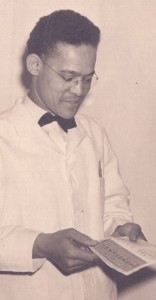 Theodore Roosevelt Youngblood, Sr. was born on this day in 1903 in Limestone County (east of Waco). Youngblood was a civic leader and headwaiter at the Driskill Hotel and Stephen F. Austin hotels in Austin. He received a Bachelor of Arts degree in history in 1927 from Samuel Huston College (now Huston-Tillotson University), however, his employment opportunities were limited to jobs such as porter at the Capitol and waiter at Austin hotels. He served as headwaiter at the Driskill and the Stephen F. Austin Hotel from the 1930s until his retirement in 1968. At those hotels, he put together and served receptions, dinner parties, and meetings for prominent white politicians, businessmen, educators, and cattlemen for the Austin area and the state of Texas including President Lyndon B. Johnson and governors Dolph Briscoe, John Connally, and Allan Shivers. Youngblood was chairman of the Negro Chamber of Commerce and president of the Huston College alumni association. He also entertained at his home many well-known black leaders such as NAACP attorney Thurgood Marshall. Youngblood died on February 9, 1993, at age 90.
Theodore Roosevelt Youngblood, Sr. was born on this day in 1903 in Limestone County (east of Waco). Youngblood was a civic leader and headwaiter at the Driskill Hotel and Stephen F. Austin hotels in Austin. He received a Bachelor of Arts degree in history in 1927 from Samuel Huston College (now Huston-Tillotson University), however, his employment opportunities were limited to jobs such as porter at the Capitol and waiter at Austin hotels. He served as headwaiter at the Driskill and the Stephen F. Austin Hotel from the 1930s until his retirement in 1968. At those hotels, he put together and served receptions, dinner parties, and meetings for prominent white politicians, businessmen, educators, and cattlemen for the Austin area and the state of Texas including President Lyndon B. Johnson and governors Dolph Briscoe, John Connally, and Allan Shivers. Youngblood was chairman of the Negro Chamber of Commerce and president of the Huston College alumni association. He also entertained at his home many well-known black leaders such as NAACP attorney Thurgood Marshall. Youngblood died on February 9, 1993, at age 90.
Jan. 9
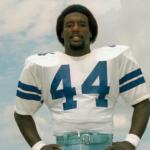 On this date in 1950 Dallas Cowboys running back Robert Newhouse was born in Longview. He starred at Galilee High School in Hallsville, situated between Longview and Marshall. The University of Houston was the only major school recruiting offer he received and with the Cougars, from 1969-1971, Newhouse set several rushing records and left the school as its all-time single-season rushing leader with 1,757 yards as a senior. That total, at the time, was the second most rushing yards in a season in NCAA history and earned Newhouse second-team All-American honors. He was a second-round draft pick by the Cowboys in 1972 and played all of his 12 NFL seasons with Dallas. Newhouse led the team in rushing with 930 yards in 1975.
On this date in 1950 Dallas Cowboys running back Robert Newhouse was born in Longview. He starred at Galilee High School in Hallsville, situated between Longview and Marshall. The University of Houston was the only major school recruiting offer he received and with the Cougars, from 1969-1971, Newhouse set several rushing records and left the school as its all-time single-season rushing leader with 1,757 yards as a senior. That total, at the time, was the second most rushing yards in a season in NCAA history and earned Newhouse second-team All-American honors. He was a second-round draft pick by the Cowboys in 1972 and played all of his 12 NFL seasons with Dallas. Newhouse led the team in rushing with 930 yards in 1975.
Jan. 10
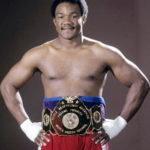 On this day in 1949, heavyweight boxing champion and successful entrepreneur George Foreman was born in Marshall. Foreman, who would also become an ordained minister, went from being a street brawler in Houston’s Fifth Ward to the Job Corps program where he became a boxer and won a gold medal at the 1968 Summer Olympics in Mexico City. He won his first heavyweight crown when he defeated Joe Frazier in 1973, then at age 44, became the oldest fighter to win the crown when he defeated Michael Moorer in 1994. Following his boxing career, Foreman became a pitchman for the “George Foreman Lean Mean Fat-Reducing Grilling Machine,” which surpassed sales of $100 million. In 1999, Foreman Grill manufacturer Salton, Inc. paid Foreman $137.5 million in cash and stock for rights to his name and image in what some have called one of the greatest sports marketing deals in history. Foreman was inducted to the International Boxing Hall of Fame on June 8, 2003.
On this day in 1949, heavyweight boxing champion and successful entrepreneur George Foreman was born in Marshall. Foreman, who would also become an ordained minister, went from being a street brawler in Houston’s Fifth Ward to the Job Corps program where he became a boxer and won a gold medal at the 1968 Summer Olympics in Mexico City. He won his first heavyweight crown when he defeated Joe Frazier in 1973, then at age 44, became the oldest fighter to win the crown when he defeated Michael Moorer in 1994. Following his boxing career, Foreman became a pitchman for the “George Foreman Lean Mean Fat-Reducing Grilling Machine,” which surpassed sales of $100 million. In 1999, Foreman Grill manufacturer Salton, Inc. paid Foreman $137.5 million in cash and stock for rights to his name and image in what some have called one of the greatest sports marketing deals in history. Foreman was inducted to the International Boxing Hall of Fame on June 8, 2003.
Jan. 10
Teresa Graves, a singer and actress, was born on this day in Houston, in 1949. Graves was a regular on “Rowan & Martin’s Laugh-In” comedy show in 1969 and 1970. She also starred in the television police drama “Get Christie Love” in 1974-75, making her the first African American woman to star in her own hour-long drama television series.
Jan. 10
Thelma Joyce White was born on this day in 1936 in Marlin. In March 1955, lawyers including the NAACP’s Thurgood Marshall, acting in her behalf filed suit in federal court seeking her admission to Texas Western College, part of the University of Texas System. Before White’s case, the law and medical schools and several graduate programs had been opened to blacks, but all undergraduate schools in Texas remained closed. White won the suit and blacks were admitted to TWC and other public universities in Texas. Ironically, White never attended the school, choosing instead to remain at nearby New Mexico A&M in Las Cruces where she had already begun studies.
Jan. 11
On this day in 1945, Secretary of the Treasury Henry Morgenthau Jr., honored Houston’s Hugh McElroy for participating in bond drives as a speaker and poster model. McElroy was reportedly the first African American whose picture appeared as an advertisement for U.S. war bonds. At age 14, McElroy, a Kentucky native, lied about his his age and enlisted in the Tenth Cavalry. He served in Cuba in the Spanish-American War, in the Philippine Insurrection, and on Gen. John Pershing’s expedition into Mexico. Highly-decorated, McElroy retired in 1927 and settled in Houston.
Jan. 12
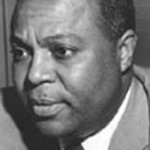 Civil Rights activist James Farmer, Jr. was born on this day in 1920 in Marshall. A graduate of Wiley College, in 1942, Farmer co-founded and was national director of the Congress of Racial Equality which originated integrated bus trips through the South, called “Freedom Rides” to challenge local efforts to block the desegregation of interstate busing, and to support passage of Civil Rights and Voting Rights acts in the 1960s. As a result of CORE’s efforts, more than 100 Southern bus terminals were desegregated. In 1998, Farmer was awarded the Presidential Medal of Freedom.
Civil Rights activist James Farmer, Jr. was born on this day in 1920 in Marshall. A graduate of Wiley College, in 1942, Farmer co-founded and was national director of the Congress of Racial Equality which originated integrated bus trips through the South, called “Freedom Rides” to challenge local efforts to block the desegregation of interstate busing, and to support passage of Civil Rights and Voting Rights acts in the 1960s. As a result of CORE’s efforts, more than 100 Southern bus terminals were desegregated. In 1998, Farmer was awarded the Presidential Medal of Freedom.
Jan. 12
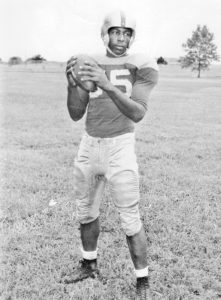 Charlie “Choo Choo” Brackins was born this day in 1932 in Dallas. Brackins starred as a quarterback at Prairie View A&M, leading the Panthers to 33 wins in the 37 games he played from 1951 to 1955. In his brief (seven games) National Football League career, Brackins was a 16th round pick by the Green Bay Packers in the 1955 draft. On October 23,1955, Brackins played the final minutes of a game against the Cleveland Browns, making him the fourth black quarterback to play in an NFL game and the first player from an HBCU to play quarterback in the NFL. Brackins was voted to the Black College Football Hall of Fame with the 2013 class. He was a two-time Pittsburgh Courier All-American (1953 and 1954) and led PV to three Southwestern Athletic Conference championships (1952, 1953, 1954) and two Black College National Championships (1953 and 1954).
Charlie “Choo Choo” Brackins was born this day in 1932 in Dallas. Brackins starred as a quarterback at Prairie View A&M, leading the Panthers to 33 wins in the 37 games he played from 1951 to 1955. In his brief (seven games) National Football League career, Brackins was a 16th round pick by the Green Bay Packers in the 1955 draft. On October 23,1955, Brackins played the final minutes of a game against the Cleveland Browns, making him the fourth black quarterback to play in an NFL game and the first player from an HBCU to play quarterback in the NFL. Brackins was voted to the Black College Football Hall of Fame with the 2013 class. He was a two-time Pittsburgh Courier All-American (1953 and 1954) and led PV to three Southwestern Athletic Conference championships (1952, 1953, 1954) and two Black College National Championships (1953 and 1954).
Blog: Ron Goodwin, Ph.D., author, PVAMU history professor
Ron Goodwin is an assistant professor of history at Prairie View A&M University. Even though he was a military “brat,” he still considers San Antonio home. Like his father and brother, Ron joined the U.S. Air Force and while enlisted received his undergraduate degree from Texas Lutheran University in Seguin, Texas. After his honorable discharge, he completed graduate degrees from Texas Southern University. Goodwin’s book, Blacks in Houston, is a pictorial history of Houston’s black community. His most recent book, Remembering the Days of Sorrow, examines the institution of slavery in Texas from the perspective of the New Deal’s Slave Narratives.
Recent Posts
Uncommon integrity
I, (NAME), do solemnly swear (or affirm) that I will support and defend the Constitution of the United States against all enemies, foreign and domestic; that I will bear true faith and allegiance to the same; and that I will obey the orders of the President of the United States and the orders of the…(more)
Democratic hypocrisy
Democracy (noun) – The belief in freedom and equality between people, or a system of government based on this belief, in which power is either held by elected representatives or directly by the people themselves. — Cambridge Dictionary Over a hundred years ago W.E.B. Dubois asked if one could be black and an American. He saw this “twoness” as perhaps the central issue affecting all Africans in America. Personally, I also feel a unique identity crisis…(more)
Submissions wanted
Historians, scholars, students, lend us your…writings. Help us produce the most comprehensive documentation ever undertaken for the African American experience in Texas. We encourage you to contribute items about people, places, events, issues, politics/legislation, sports, entertainment, religion, etc., as general entries or essays. Our documentation is wide-ranging and diverse, and you may research and write about the subject of your interest or, to start, please consult our list of suggested biographical entries and see submission guidelines. However, all topics must be approved by TIPHC editors before beginning your research/writing.
We welcome your questions or comments. Please contact Michael Hurd, Director of TIPHC, at mdhurd@pvamu.edu.

